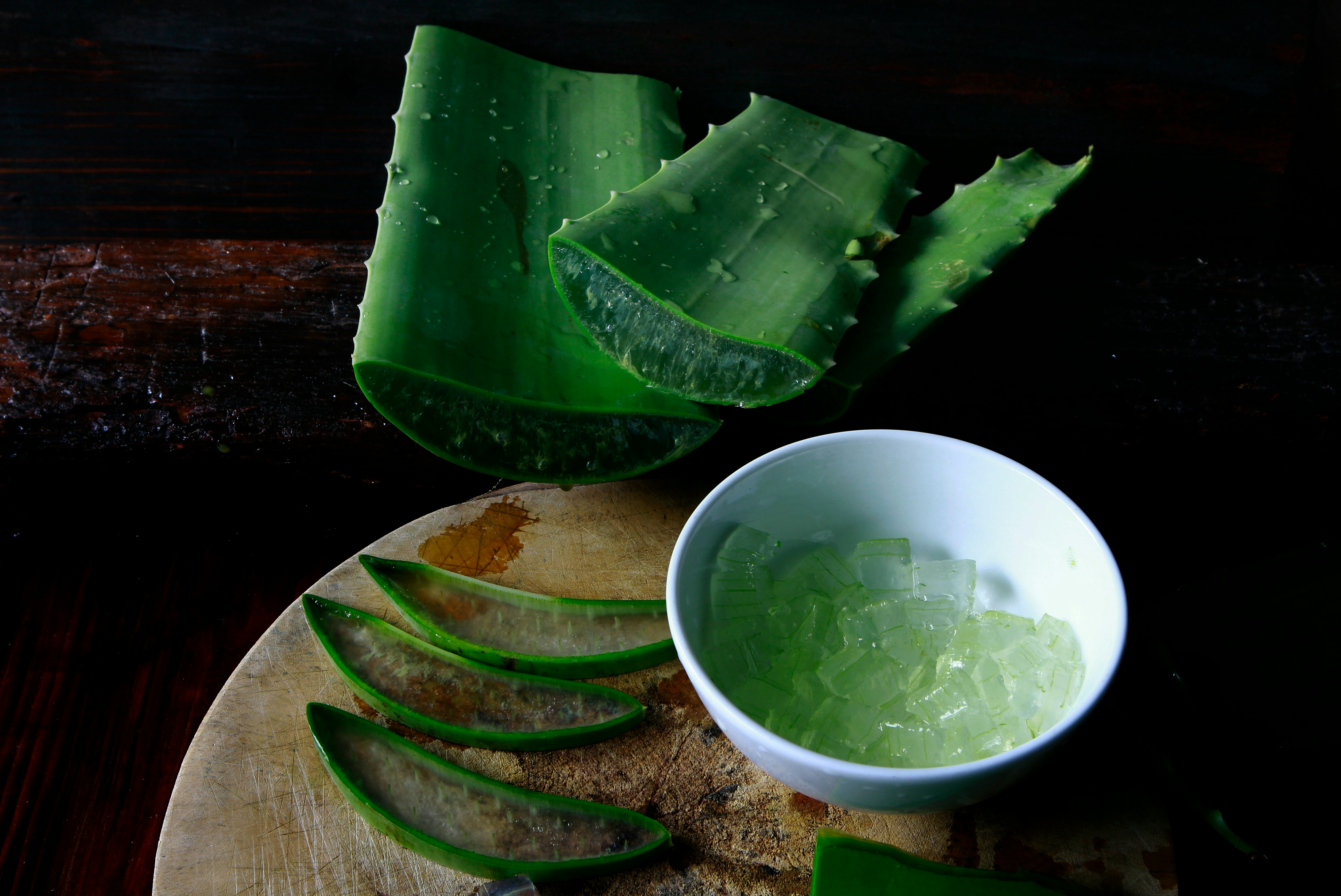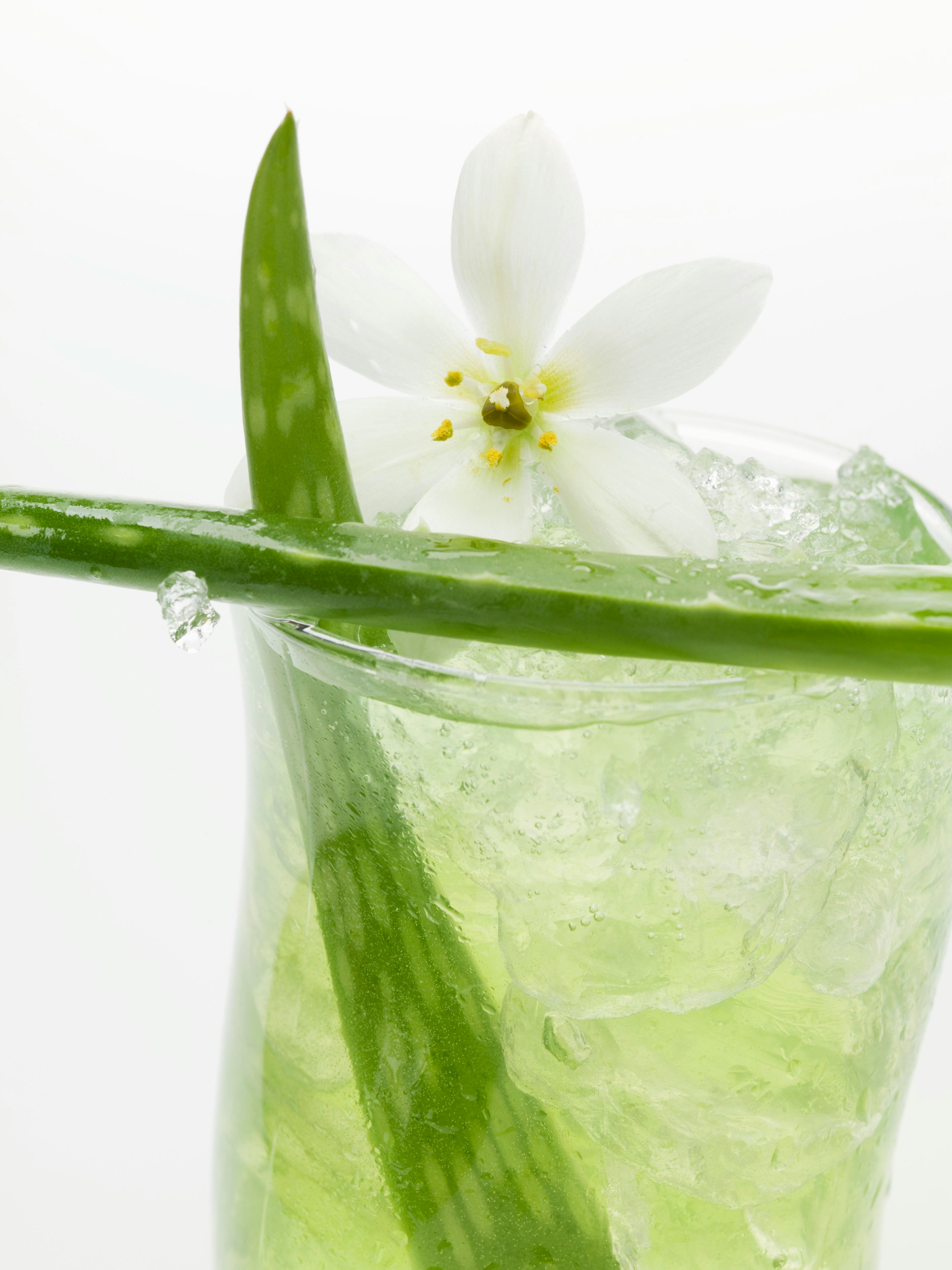
If you are a sunburn-prone person like myself, you likely have endless childhood memories of being slathered with a sticky green gel after a day in the sun. The aloe vera plant has been used medicinally for centuries; the gel inside the leaves is particularly good for soothing external burns. Not being on TikTok and, apparently, having my head in the sand, I didn’t realize that aloe vera is something that people actually ingest.
But oh boy, is it. Videos touting the benefits of aloe vera juice for everything from acne to gut health have wracked up millions of views. But is juice from the plant you use to treat your sunburns really something you should be drinking? Here’s what the science says about drinking aloe vera juice.
Are there risks to drinking aloe vera juice?
The first thing to know is that, under no circumstances, should you be ingesting the aloe vera gel you buy for a sunburn. Topical aloe vera gels don’t contain 100 percent aloe vera. To preserve the gel’s shelf life, certain ingredients must be added.
According to the Mayo Clinic, what you want to avoid consuming is aloe latex. Aloe latex is the sap that forms underneath the rind of the aloe plant and is found between the gel and outer leaf. While some compounds in the latex have been found to have some beneficial properties, there are also very serious concerns about other compounds in the latex causing kidney damage and possibly being carcinogenic.
The Mayo Clinic’s website notes, “While aloe is generally safe when used as recommended, oral use of aloe latex poses safety concerns. In fact, taking 1 gram a day of aloe latex for several days can cause kidney damage and might be fatal.”
You may want to stay away from aloe leaf extracts as well. According to the Mayo Clinic, “Oral consumption of aloe leaf extracts (for as little as 3 weeks and as long as 5 years) has been related to cases of acute hepatitis.” It is not recommended that children under the age of 12 take aloe latex or whole aloe leaf supplements in any quantity.
Anyone with a latex allergy should stay away from aloe latex in any quantity, the Mayo Clinic says.
In 2002, the FDA ordered manufacturers to remove aloe latex from over-the-counter laxatives due to a lack of information about safety.
Leslie Bonci, a registered dietician and adjunct instructor in the school of dental medicine at the University of Pittsburgh tells Inverse, “My biggest concern—other than someone drinking way too much — is if someone thinks ‘I’m drinking aloe vera juice for some condition and because I’m doing that, I don’t need to take my medication. That’s a big concern.”
Further, because of the potential laxative effects, consuming too much can cause electrolyte imbalances.

“More is not better,” she says. “Everybody has a different tolerance for it.”
But, she adds, there may be some benefits to consuming it in small quantities, for some people.
Are there benefits to drinking aloe vera juice?
One of the primary claims made on TikTok that caused views to skyrocket is that drinking aloe vera juice can help clear up acne. Unfortunately, dermatologist Whitney Bowe specializes in the gut-skin connection: how the microbiome (the colony of bacteria in the gut) affects the skin.
In her own TikTok video, Bowe said the data supporting such claims is “underwhelming.” There may be some antiaging skincare benefits — studies have found that aloe vera supplements (designed to be ingested) can help ameliorate the negative effects sun exposure has on the skin (think wrinkles, not sunburn) and improve skin elasticity, which declines as we age.
Bonci has her doubts about the extent to which an oral supplement can improve skin elasticity.
“Certainly it’s been used as a topical for centuries, typically for wound care,” she says. “But drinking aloe vera is not going to bring elasticity and collagen back [to your skin].”
Bonci says in her experience, “Aloe taken internally is most beneficial if somebody is having slower transit time or constipation. But I have had patients that have inflammatory bowel disease, Crohn's Disease or ulcerative colitis, that have been told drinking it is good for inflammation, but that’s not quite true because nobody knows.”
In 2004, a small European study of 44 adults with ulcerative colitis found that an oral aloe vera gel was superior to a placebo in alleviating symptoms of the condition. There was no difference in inflammatory markers between the aloe group and the placebo, suggesting limitations of aloe as a therapy for ulcerative colitis.
That small randomized controlled trial is not enough to convince many physicians; when Inverse reached out to the University of Nebraska Medical Center’s Gastroenterology Department about ulcerative colitis and aloe vera, they noted that no large scale study has found evidence for the use of aloe vera in treating ulcerative colitis, something other physicians have echoed.
Data on irritable bowel syndrome (IBS) and aloe vera juice is equally unclear. Out of three trials evaluating oral aloe vera for symptoms of IBS, results from one trial showed some benefit while the other two trials showed no benefit of aloe vera over placebo.
Aloe does have many antioxidants and at least one study has found that eating the gel can raise antioxidant levels in the blood.
So if you do choose to drink aloe vera juice, the University of Pittsburgh's Bonci says to limit the portion size.
The juice is often sold in large containers, but Bonci says that's far more than you need in a day. “Think more like the little shot glass that’s on top of the cough syrup. That’s the way to do it.”







